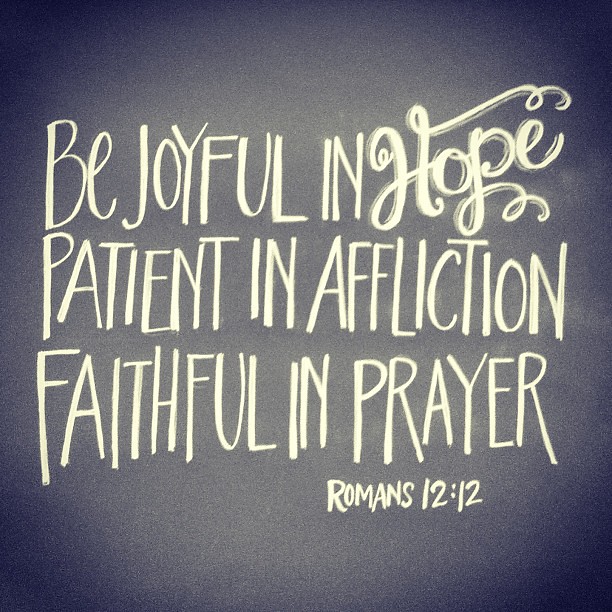
1 Timothy 1:15-16
New American Standard
Bible (NASB)
15
It is a trustworthy statement, deserving full acceptance, that Christ Jesus
came into the world to save sinners, among whom I am foremost of all. 16 Yet
for this reason I found mercy, so that in me as the foremost, Jesus Christ
might demonstrate His perfect patience as an example for those [a]who would
believe in Him for eternal life.
The
19th Century American Hymn Writer, Fanny J Crosby wrote these wonderful words
Blessed
assurance, Jesus is mine!
O
what a foretaste of glory divine!
Heir
of salvation, purchase of God,
Born
of His Spirit, washed in His blood.
Refrain:
This
is my story, this is my song,
praising
my Saviour all the day long;
this
is my story, this is my song,
praising
my Saviour all the day long.
Perfect
submission, perfect delight!
Visions
of rapture now burst on my sight;
Angels
descending bring from above
Echoes
of mercy, whispers of love.
Perfect
submission, all is at rest!
I
in my Saviour am happy and blest,
Watching
and waiting, looking above,
Filled
with his goodness, lost in His love
We
have looked at the phrase, in 1 Tim 1:16, For this reason I found Mercy,
today we will start to look at the
phrase The Justification and sanctification of believers through the finished
work of Christ and we will start to look
at the doctrine of Justification and then next week we will follow on by
looking at the doctrine of Sanctification. But what do we mean by Justification
?
Simply
put, to justify is to declare righteous, to make one right with God.
Justification is God’s declaring those who receive Christ to be righteous,
based on Christ’s righteousness being imputed to the accounts of those who
receive Christ
We
are justified, declared righteous, at the moment of our salvation.
Justification does not make us righteous, but rather pronounces us righteous.
Our righteousness comes from placing our faith in the finished work of Jesus
Christ. His sacrifice covers our sin, allowing God to see us as perfect and
unblemished. Because as believers we are in Christ, God sees Christ's own
righteousness when He looks at us. This meets God's demands for perfection;
thus, He declares us righteous—He justifies us.
Justification
is an instantaneous legal act of God in which he a) thinks of our sins as
forgiven and Christ’s righteousness as belonging to us and b) declares us to be
righteous in his sight
Westminister
Confession of Faith,
Chapter
XI
Of
Justification
I.
Those whom God effectually calls, He also freely justifies;[1] not by infusing
righteousness into them, but by pardoning their sins, and by accounting and
accepting their persons as righteous; not for any thing wrought in them, or
done by them, but for Christ's sake alone; nor by imputing faith itself, the
act of believing, or any other evangelical obedience to them, as their
righteousness; but by imputing the obedience and satisfaction of Christ unto
them,[2] they receiving and resting on Him and His righteousness by faith;
which faith they have not of themselves, it is the gift of God.[3]
II.
Faith, thus receiving and resting on Christ and His righteousness, is the alone
instrument of justification:[4] yet is it not alone in the person justified,
but is ever accompanied with all other saving graces, and is no dead faith, but
works by love.[5]
III.
Christ, by His obedience and death, did fully discharge the debt of all those
that are thus justified, and did make a proper, real and full satisfaction to
His Father's justice in their behalf.[6] Yet, in as much as He was given by the
Father for them;[7] and His obedience and satisfaction accepted in their
stead;[8] and both, freely, not for any thing in them; their justification is
only of free grace;[9] that both the exact justice, and rich grace of God might
be glorified in the justification of sinners.[10]
IV.
God did, from all eternity, decree to justify all the elect,[11] and Christ
did, in the fullness of time, die for their sins, and rise again for their
justification:[12] nevertheless, they are not justified, until the Holy Spirit
does, in due time, actually apply Christ unto them.[13]
V.
God does continue to forgive the sins of those that are justified;[14] and
although they can never fall from the state of justification,[15] yet they may,
by their sins, fall under God's fatherly displeasure, and not have the light of
His countenance restored unto them, until they humble themselves, confess their
sins, beg pardon, and renew their faith and repentance.[16]
VI.
The justification of believers under the Old Testament was, in all these
respects, one and the same with the justification of believers under the New
Testament.[17]
Now
let us examine the Scriptures in regards to Justification
1. Romans 3:21-26 21 But now apart [k]from the
Law the righteousness of God has been manifested, being witnessed by the Law
and the Prophets, 22 even the righteousness of God through faith in Jesus
Christ for all those [l]who believe; for there is no distinction; 23 for all
[m]have sinned and fall short of the glory of God, 24 being justified as a gift
by His grace through the redemption which is in Christ Jesus; 25 whom God
displayed publicly as a [n]propitiation [o]in His blood through faith. This was
to demonstrate His righteousness, [p]because in the forbearance of God He
passed over the sins previously committed; 26 for the demonstration, I say, of
His righteousness at the present time, so that He would be just and the
justifier of the one who [q]has faith in Jesus.
2. Romans 5:1-11 Therefore, having been
justified by faith, [a]we have peace with God through our Lord Jesus Christ, 2
through whom also we have obtained our introduction by faith into this grace in
which we stand; and [b]we exult in hope of the glory of God. 3 And not only
this, but [c]we also exult in our tribulations, knowing that tribulation brings
about perseverance; 4 and perseverance, proven character; and proven character,
hope; 5 and hope does not disappoint, because the love of God has been poured
out within our hearts through the Holy Spirit who was given to us.
3. 6 For while we were still helpless, at the
right time Christ died for the ungodly. 7 For one will hardly die for a
righteous man; [d]though perhaps for the good man someone would dare even to
die. 8 But God demonstrates His own love toward us, in that while we were yet
sinners, Christ died for us. 9 Much more then, having now been justified [e]by
His blood, we shall be saved from the wrath of God through Him. 10 For if while
we were enemies we were reconciled to God through the death of His Son, much
more, having been reconciled, we shall be saved [f]by His life. 11 And not only
this, [g]but we also exult in God through our Lord Jesus Christ, through whom
we have now received the reconciliation.
4. Romans 5:12-21 12 Therefore, just as through
one man sin entered into the world, and death through sin, and so death spread
to all men, because all sinned— 13 for [h]until the Law sin was in the world,
but sin is not imputed when there is no law. 14 Nevertheless death reigned from
Adam until Moses, even over those who had not sinned in the likeness of the
offense of Adam, who is a [i]type of Him who was to come15 But [j]the free gift
is not like the transgression. For if by the transgression of the one the many
died, much more did the grace of God and the gift by the grace of the one Man,
Jesus Christ, abound to the many. 16 The gift is not like that which came
through the one who sinned; for on the one hand the judgment arose from one
transgression [k]resulting in condemnation, but on the other hand the free gift
arose from many transgressions [l]resulting in justification. 17 For if by the
transgression of the one, death reigned through the one, much more those who
receive the abundance of grace and of the gift of righteousness will reign in
life through the One, Jesus Christ.18 So then as through one transgression
[m]there resulted condemnation to all men, even so through one act of
righteousness [n]there resulted justification of life to all men. 19 For as
through the one man’s disobedience the many were made sinners, even so through
the obedience of the One the many will be made righteous. 20 [o]The Law came in
so that the transgression would increase; but where sin increased, grace
abounded all the more, 21 so that, as sin reigned in death, even so grace would
reign through righteousness to eternal life through Jesus Christ our Lord.
5. Galatians 2:16-21”nevertheless knowing that
a man is not justified by the works of [n]the Law but through faith in Christ
Jesus, even we have believed in Christ Jesus, so that we may be justified by
faith in Christ and not by the works of [o]the Law; since by the works of
[p]the Law no [q]flesh will be justified. 17 But if, while seeking to be
justified in Christ, we ourselves have also been found sinners, is Christ then
a minister of sin? May it never be! 18 For if I rebuild what I have once
destroyed, I prove myself to be a transgressor.19 For through [r]the Law I died
to [s]the Law, so that I might live to God. 20 I have been crucified with
Christ; and it is no longer I who live, but Christ lives in me; and [t]the life
which I now live in the flesh I live by faith in the Son of God, who loved me
and gave Himself up for me. 21 I do not nullify the grace of God, for if
righteousness comes through[u]the Law, then Christ died needlessly
6. Romans 8:29-35 29 For those whom He
foreknew, He also predestined to become conformed to the image of His Son, so
that He would be the firstborn among many brethren; 30 and these whom He
predestined, He also called; and these whom He called, He also justified; and
these whom He justified, He also glorified.31 What then shall we say to these
things? If God is for us, who is against us? 32 He who did not spare His own
Son, but delivered Him over for us all, how will He not also with Him freely
give us all things? 33 Who will bring a charge against God’s elect? God is the
one who justifies; 34 who is the one who condemns? Christ Jesus is He who died,
yes, rather who was [l]raised, who is at the right hand of God, who also
intercedes for us. 35 Who will separate us from the love of [m]Christ? Will
tribulation, or distress, or persecution, or famine, or nakedness, or peril, or
sword?





